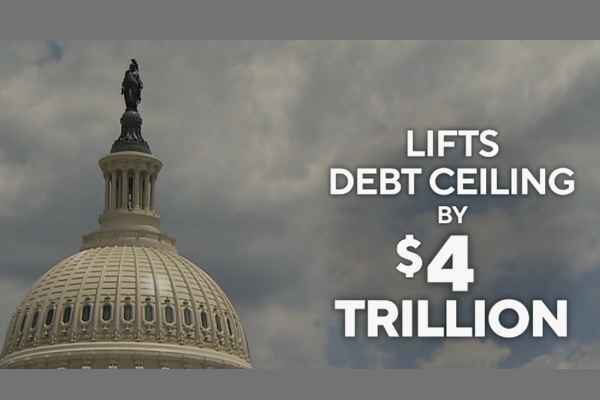On Sunday, House Speaker Kevin McCarthy announced a tentative deal made with the Biden administration on the Debt Ceiling.
This deal comes in the wake of a resolute. The resolute is to avert a catastrophic financial default, whilst heading on with the current plans to raise the debt ceiling for the following two years, until 2025.
The Democrats Share of Cuts alongwith Debt Ceiling Raise

Under the deal negotiated and approved by President Joe Biden’s White House firstly, Democrats appear prepared to accept stricter work requirements for social security programmes. Additionally they are prepared, even for a minor rollback of a significant portion of all their most significant legislative achievements, that they earned till date.
Biden On Debt Ceiling Deal With McCarthy
Biden said it was a compromise which saved the country from recession, and prevented millions from losing their jobs and saved people of their retirement accounts.
The Deal Agreed Upon
The tentative deal, would set limitations for 2025 and freeze non-defense spending for 2024. That would imply that defence spending would increase even as money for progressive objectives like education and health care actually decreased.
According to Sen Chirs Murphy, President Biden kept most of the reckless things out of the negotiations.
Most GOP House representatives lambasted McCarthy on the deal. They opined that, McCarthy failed to significantly improve the country’s long-term budgetary situation or obstruct government plans on climate change or student loan relief, falling far short of realising the most audacious conservative dreams.
The Debt Ceiling Raise and IRS Cut
The White House agreed to reduce part of the $80 billion in new funding for the IRS obtained in last year’s Inflation Reduction Act in order to shield domestic expenditure from even deeper cuts.
Republicans wanted a complete withdrawal of the funds because they wrongly claimed it would hire an army of investigators to audit Americans. Since the IRS will have fewer resources to pursue tax fraudsters, the funding reductions are actually predicted to increase the deficit.
The Debt Ceiling Raise and SNAP Program Ammends
Another suggestion was to strengthen the Supplemental Nutrition Assistance Program’s (SNAP) current job requirement, which provides food welfare to more than 20 million households.
Current SNAP regulations state that childless persons aged between 18 and 49 who are physically capable of working, volunteering, or enrolling in a training programme for 20 hours per week are only eligible for three months of benefits.
A key Republican demand, the Biden-McCarthy agreement would raise the age requirement for the SNAP work mandate to 54.
However, the agreement completely exempts homeless people and veterans from the labour requirement – a significant and unexpected shift that will probably lessen the effect of the upper age criteria. The original Republican proposal, according to the impartial Congressional Budget Office, would have reduced SNAP participation by 275,000. According to a different examination of SNAP’s current job requirements, many of the beneficiaries who would lose their benefits are homeless.
Another victory for Biden, the settlement makes the changes to the employment requirements temporary and sets a sunset date of 2030.
The Republicans and the TANF Proposal
The Republicans also sought to change TANF eligibility requirements so that recipients must engage in employment activities. Less than 1 million families receive financial benefits from “welfare,” as it is widely known. The President battled to ensure that states would continue assisting those households and their children, revealed a White House memo.
US corporations have praised the agreement on the Debt Ceiling agreed by the Speaker of the House Kevin McCarthy and President Joe Biden to prevent a default on debt.




